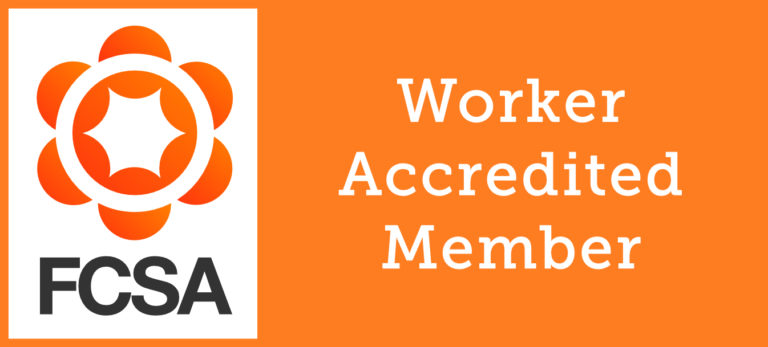
The candidate-led market sparked by Brexit, Covid and skills shortages is set to continue into 2022. Around a third of UK workers are already proactively looking for new employment, and 1 in 4 people plan to accept a new role between January and March 2022 alone. Contracting will also remain popular in the coming years despite IR35 and economic upheaval: 70% of freelancers and contractors intend to keep contracting in the next three years, and the freedom and flexibility offered by self-employment is set to see many permanent workers transition to contracting in 2022.
Whilst the popularity of contracting is good news for recruiters, competition for the best contractor candidates will continue to rise rapidly in 2022. The number of job vacancies in August to October 2021 hit a new record of 1,172,000: an astronomical increase of 49% from pre-Covid times in Q1 2020. As most industries are fast approaching urgent shortages of staff – and employers are competing with more companies than ever before for continually shrinking talent pools – how can recruitment consultants build and maintain the best possible contractor candidate networks?
3 Ways Recruiters Can Attract, Engage and Retain the Best Contractor Candidates
1. Get Organised
Recruiters excel at verbal communication: building relationships from the ground up, supporting people through new journeys and giving individuals the confidence they need to ace interviews are all vital skills in the staffing industry. However, consultants usually pay less attention to the paperwork and administrative tasks that are just as necessary to a successful placement – meaning some candidates are left without information or vital timely updates.
Once you’ve put in the initial effort to get organised, the following take very little time whilst helping you find and retain more skilled contractors:
- Keep track of your existing contractors – ensure you’re informed and in touch with them weeks ahead of their current assignment finish date, so that you can get a new role lined up for them in plenty of time.
- Make use of your relationship skills internally – build a good rapport and regular communication with your finance and operations teams. Normalising collaboration with your back office will help you and your agency identify any errors in payment or compliance as soon as possible. Contractors who receive prompt payment and the best possible onboarding experience are far more likely to remain loyal to you and your agency.
- Take full advantage of your CRM system and use it as your first port of call for every new search. Although every agency will have a vast volume of candidate details recorded on their system, most recruiters and delivery teams spend hours poring over job boards and LinkedIn before turning to their existing database – where the best candidate will already have been registered. Save yourself hours of time every week through regular data clean-ups and recording every activity on your system, so that every new search is as fast and fruitful as possible.
2. Recruit in the Right Places
Every recruiter knows that the old days of putting out one simple job advert and hoping for floods of quality applicants is a thing of the past, however some are still relying on traditional methods in times of talent shortages. Job boards and professional networks like LinkedIn will only get you so far: to find valuable untapped talent pools, consultants need to widen their perspectives – and their networks.
Skills shortages have long existed across industries, but most employers and staffing specialists have yet to fully leverage ready and waiting talent pools. Diverse groups, particularly those with disabilities and from socioeconomically disadvantaged backgrounds, have skills and knowledge in abundance. Most managers and HR teams seek carbon copies of the people they already employ, and are unconsciously biased against those who come from different walks of life and have different ways of thinking and working. It’s up to recruiters to help clients understand the value of diverse talent pipelines who are waiting and ready to bring their expertise, creativity and fresh perspectives for the benefit of companies, customers and communities.
To find untapped talent pools, recruiters can:
- Go where this talent exists, not just where your current/previous talent pools have been. Look into new spaces where candidates spend their time, such as message boards, discussion forums, events and online communities, and engage this talent before your competitors reach them.
- Utilise these networks to build strong relationships and a strong recruiter brand for yourself. Becoming a trusted name will generate market intelligence and referrals for even more skilled candidates.
- Help employers build an inclusive, welcoming brand at every touchpoint where a candidate might encounter the company. Ensure job adverts are unbiased and encourage rather than deter diverse applicants; for example, don’t include Academic qualifications unless absolutely necessary, and communicate access information and interview flexibility for those who need it. Employers who deliver a positive, welcome message to applicants of all backgrounds will make it much easier for recruiters to find and engage interested diverse candidates.
3. Get Your Candidates What They Want
With so many employment options to choose from, drop outs at offer stage – even for contractors – are more likely than ever before. Meeting the wants and needs of your candidates is the best way to reduce the likelihood of counter offers and keep your candidate interested in the role at hand. To help get your contractors the best deals – whilst balancing great client relationships and acting with integrity throughout the recruitment process – try the following tactics:
- Ask – The best way to secure a rewarding role for your candidate is to find out what they really want and deliver it to them. Steer clear of assumptions: contractors with decades of experience could be just as eager to gain new knowledge and tech skills as less seasoned workers, and some contractors will be more motivated by closely mentoring a project team than efficiently delivering a business-critical programme. Ensure you know your candidate as well as possible and find out what they really want, what truly drives and motivates them and what their deal-makers and deal-breakers are, right from the beginning of your relationship.
- Match Expectations to Reality – If recruiters and end client offerings are not closely aligned to candidate needs, the best contractors will be lost at application stage. Companies may assume that the talent pool will know all about the exciting brand projects they have to offer, so will focus on less inspiring elements of the role in the job ad and therefore fail to grab attention. Some end clients will promote the benefits schemes and working culture when their ideal candidate is most interested in understanding the flexibility and autonomy of the role. And, the end clients’ recruiters may fail to notice discrepancies or communicate sufficiently between client and candidate, leading to a mismatch that is often only discovered at contract offer stage. Approach every search with new eyes: sit down with the client to go over the job descriptions and expectations to identify any challenges, align with the profile of your ideal candidate, and communicate this consistently at every stage of the hiring process.
- Negotiate – At the beginning of the Covid-19 pandemic, over 60,000 self-employed workers saw their contracts cancelled and months of planned work vanish overnight. The damage of 2020 was further exacerbated in 2021 with the introduction of IR35, where freelancers, interims and sole traders across the UK were hit with much larger tax burdens that reduced take-home pay yet again. Now that contractors are once again in high demand (and particularly in the IT, Healthcare and Education sectors, where skills gaps are widening fast), many are holding out for the best possible financial offer to get them back on track. Maintain open communication with every client at all stages of the process to help them benchmark salaries accurately against market demand, not just against what they’ve paid previously. Start with a proposition that contractor candidates find highly valuable, and if it comes down to counter offers, keep communication going and really listen to both sides to meet at the best conclusion for everyone involved.
Set Yourself Up for Career Success With the Best Recruitment Partner
Generate have a wealth of experience providing payroll and contractor management services for recruitment agencies and their contractors. Find out more about how we could help you.
Looking to become a Recruitment Director or take your career to new heights in 2022? Discover the 3 Qualities of the Best Recruiters.











